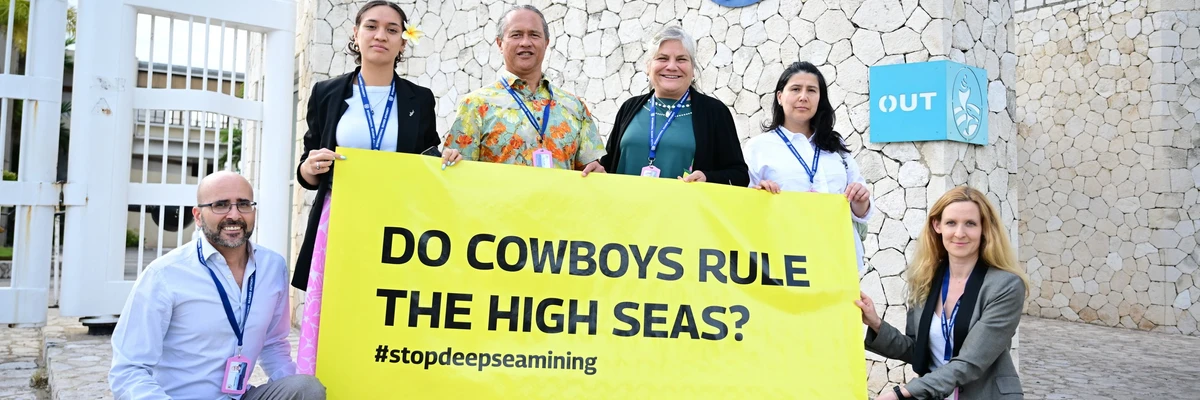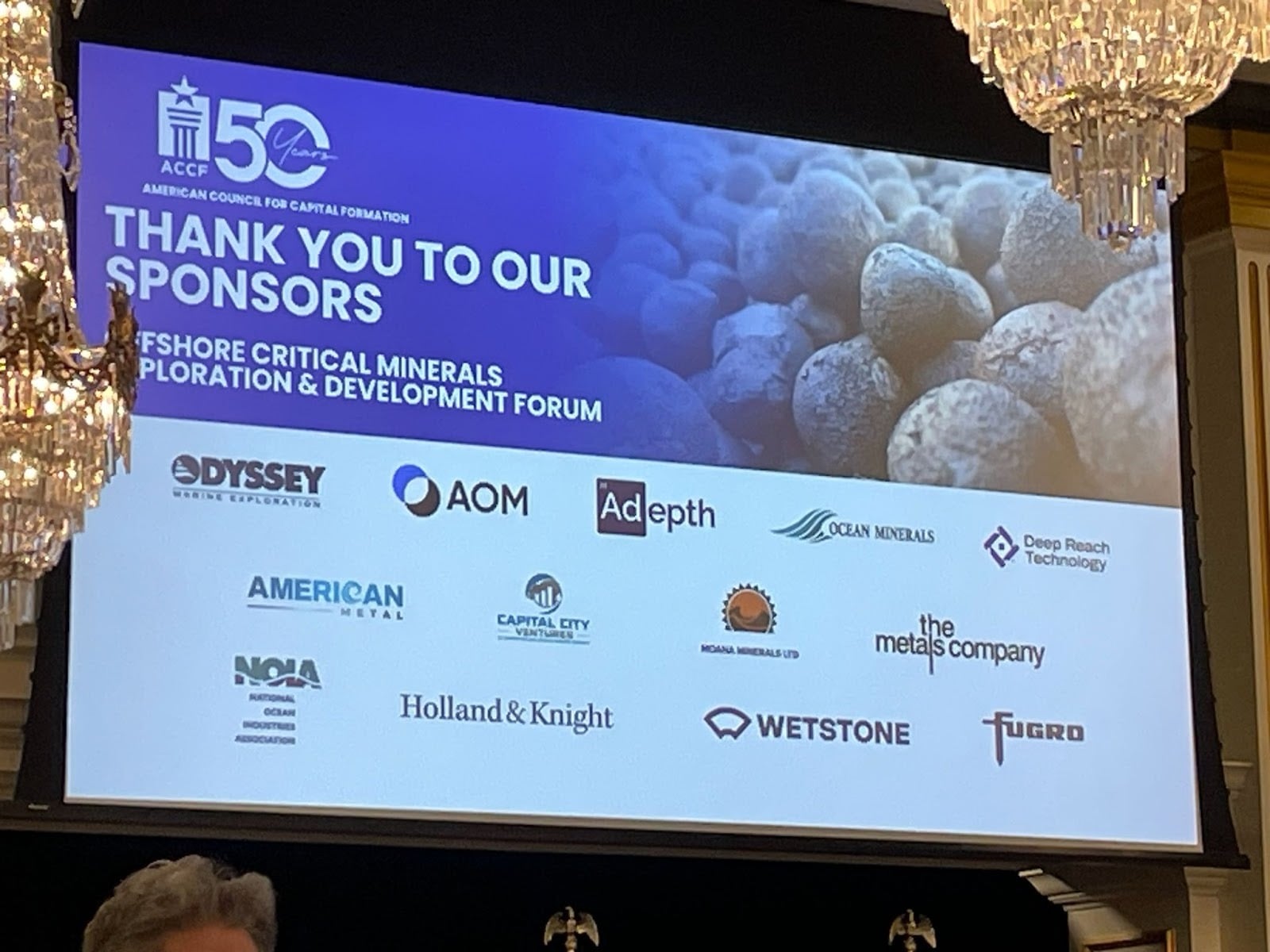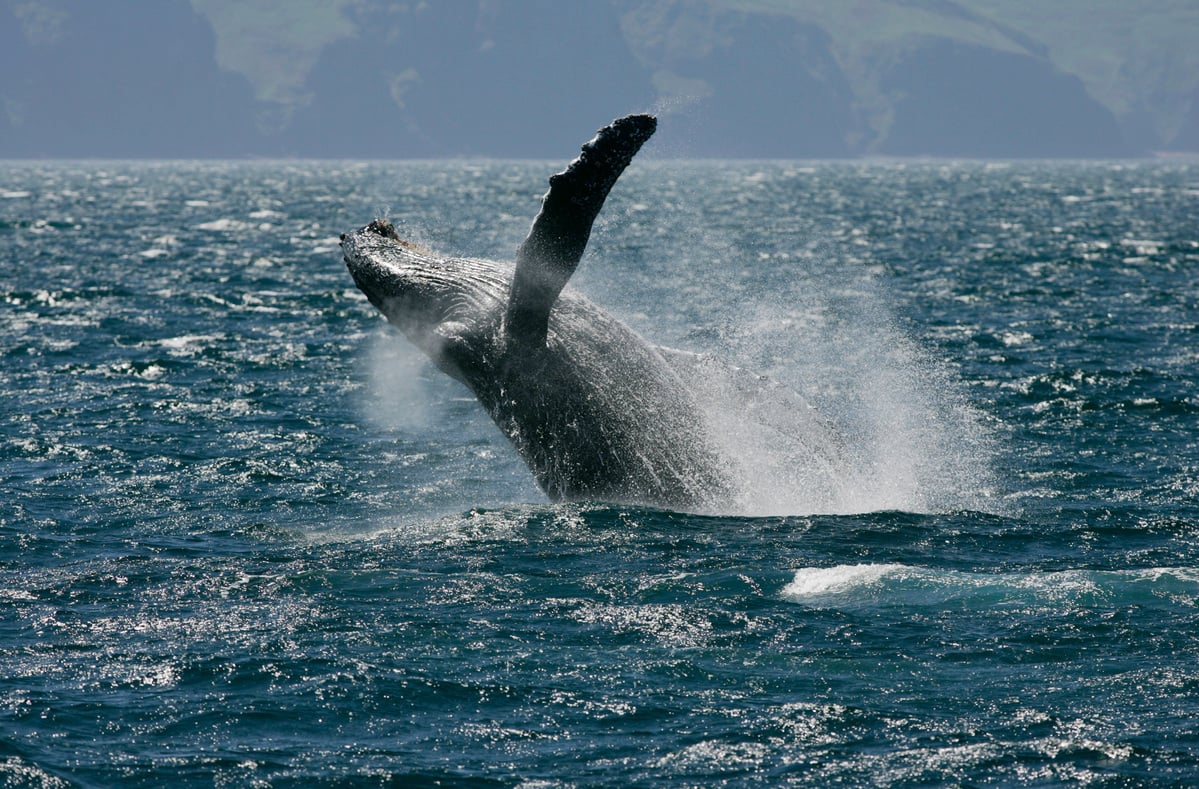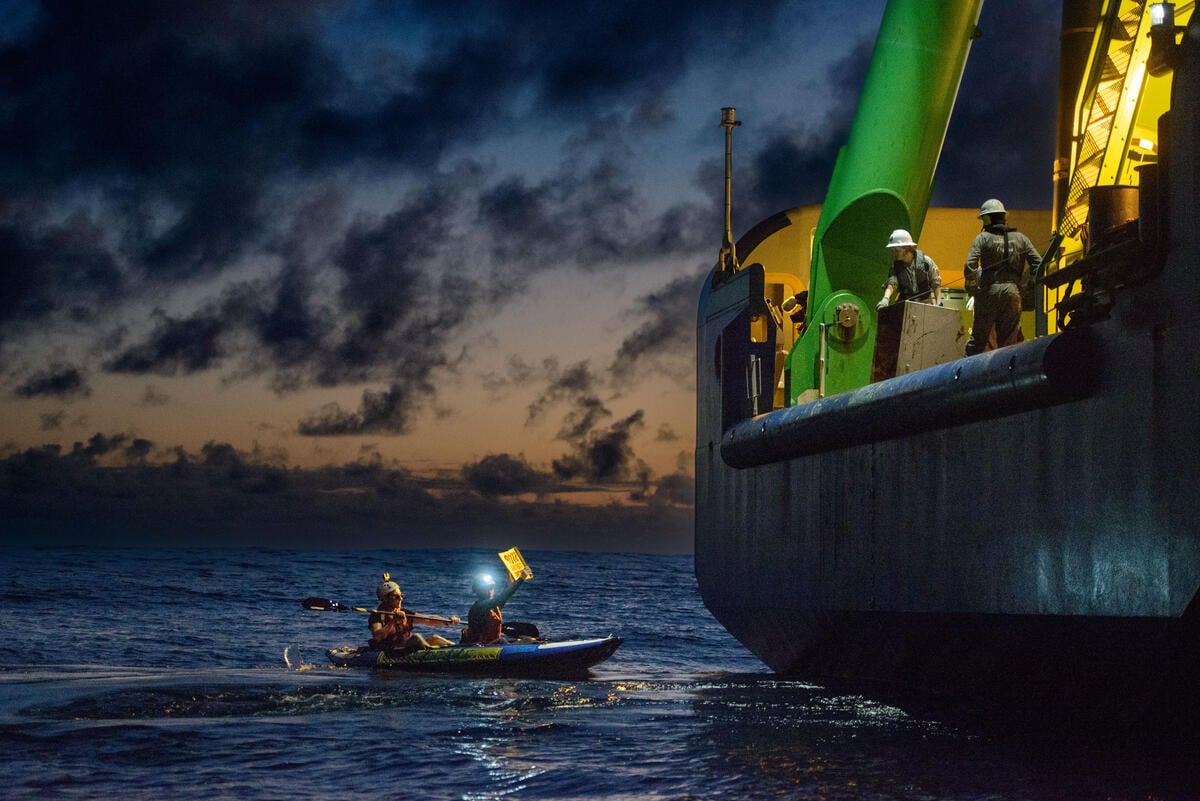
The first months of any administration are often dedicated to setting the tone of what constituents can expect for the next four years. For Trump’s second term, that message is clear: let it all burn.
Drastic agency cuts, reckless executive orders, and blatant industry giveaways promise devastating immediate and long-term consequences for our oceans, our climate, and our communities.
Dismantling climate defense
NOAA, the nation’s premier science agency for understanding, monitoring, and protecting our oceans, atmosphere, and climate, plays an essential role in safeguarding ecosystems and communities. Its data, forecasts, scientific expertise, and stewardship also support major sectors like tourism, transportation, food, and retail that rely on NOAA’s services to operate safely, efficiently, and sustainably.
Yet the Trump Administration has moved aggressively to gut NOAA’s capacity–firing scientists, defunding critical research, and shutting down its extreme weather database, a vital tool that has tracked the financial toll of climate disasters since the 1980s. These cuts come as extreme weather events are becoming more intense and frequent. In 2024 alone, Americans faced at least $182.7 billion in damages from 27 weather and climate disasters. Undermining NOAA’s ability to forecast threats, inform the American and global public, and support disaster response endangers lives while ensuring greater loss and damage, higher costs, and deep suffering as the climate crisis accelerates.
Among NOAA Fisheries’ vital programs is the Seafood Import Monitoring Program (SIMP), the nation’s primary line of defense against seafood linked to fraud, forced labor, and environmental harm. With more than 80% of the seafood consumed in the U.S. imported and the global seafood supply chain riddled with these problems, SIMP plays a crucial role in ensuring the integrity of what ends up on American plates. Cuts to NOAA directly harm domestic fisheries as well, which rely on the agency to provide weather and pollution alerts.
These efforts have been further supported by the U.S. Agency for International Development (USAID) and the Department of Labor’s Bureau of International Labor Affairs (ILAB), whose programs help combat child labor, forced labor, and human trafficking around the world.
So while Americans have made it clear that they want to know where their food comes from and to trust that it is safe, ethical, and sustainable, the Trump administration is undermining the very systems that deliver these safeguards. By weakening SIMP and cancelling $500 million in ILAB grants, it is putting seafood workers at greater risk of abuse and exploitation, and exposing Americans to products tainted by these harms.
Endangering ocean futures
While more countries move towards a ban, moratorium, or pause on deep sea mining, the Trump Administration is charging in the opposite direction– reviving a cold war-era law, the Deep Seabed Hard Mineral Resources Act, to launch an unnecessary industry that threatens irreversible harm to fragile ecosystems we are only beginning to understand.
Trump’s executive order “Unleashing America’s Offshore Critical Minerals and Resources” directs federal agencies to fast-track permits for seabed mining in both U.S. and international waters. Widely condemned as environmentally reckless and politically explosive, the move is a direct attempt to sidestep the International Seabed Authority (ISA)—the UN body charged with protecting the deep ocean as the “common heritage of humankind.” In doing so, it threatens to unravel global cooperation, weaken environmental oversight, and set a dangerous precedent for the exploitation of one of Earth’s last untouched frontiers. The order, while lining up another ‘get richer scheme’ for the billionaire broligarchy, also ignores calls from over 35 countries for a moratorium, disregards the voices of Pacific Island communities, and pushes forward despite overwhelming ecological, legal, and moral objections.

The push is further reinforced by a pair of sweeping executive orders that aim to bulldoze environmental safeguards in the name of “energy dominance.” One declares a so-called “national energy emergency,” suspending key regulatory safeguards under bedrock environmental laws like the National Environmental Policy Act (NEPA), the Endangered Species Act, and the Clean Water Act.
Together, these orders will not just fast-tack deep sea mining but also accelerate offshore drilling, fracking infrastructure, and fossil fuel exports. This isn’t just deregulation—it’s a declaration of open season on the ocean.
All this comes as cobalt and nickel prices are plummeting, further undermining the already shaky economic case for mining the seafloor. Meanwhile, safer, cleaner, and more cost-effective alternatives, such as mineral recycling and domestic refining efforts, many of which are backed by the U.S. Department of Defense, are gaining momentum. But instead of investing in these sustainable solutions, the White House is reaching into the past to gamble with the future of our oceans and our planet.
‘Unleashing’ America’s fishing industry into collapse
In another destructive move, the Trump Administration has targeted New England’s fishing industry by opening the Northeast Canyons and Seamounts National Marine Monument–the first and only National Marine Monument in the U.S. Atlantic–to commercial fishing. This follows similar rollbacks opening the Pacific Islands Heritage Marine National Monument–long considered off-limits due to its ecological significance–to commercial fishing and broader dismantling of domestic fishing regulations.
There is no evidence that these protected areas harmed the fishing economy. But opening them to industrial fishing will cause irreversible damage, from increased bycatch and habitat destruction to plastic pollution from fishing gear, undoing decades of progress to end overfishing, rebuild fish stocks, and restore America’s fisheries.
At the same time, the earlier-mentioned cuts to NOAA will also hurt domestic fishing by leaving fishers without vital scientific insight needed for planning and responding to changing ocean conditions. This approach paves the way for overfishing and fishery collapse–again, directly contradicting the Trump Administration’s stated goal of supporting American fishing communities.
Scientists agree that protecting at least 30% of the world’s oceans by 2030 is essential to help marine ecosystems recover and thrive. When fish populations collapse, so do fishing jobs and fishing communities. Yet with these actions, the Trump Administration is again steering the US in the wrong direction—sidelining science, sustainability, and long-term economic resilience by jeopardizing the entire industry and the coastal communities it supports.
Taxing our health
Trump’s chaotic tariff edicts have strained relationships with several key allies and raised costs for average Americans, all while giving fossil fuel interests a free pass. By exempting petrochemicals and polymers, the Administration has ensured that plastic packaging will remain cheap, abundant, and toxic. Companies like Coca-Cola, already the largest global producer of plastic packaging and the biggest source of branded plastic waste, are planning to ramp up plastic production in response to the tariffs on aluminum.
At the same time, the Administration issued yet another executive order, accompanied by a 36-page report, aimed at “bringing America back” to plastic straws. So, while more Americans struggle to make ends meet, they can be sure of one thing: there will be plenty of microplastics to go around.
Plastics are not just a pollution problem; they are a public health crisis. Over 3,200 chemicals in plastics have been linked to a host of serious health conditions, including cancer, hormone disruption, reproductive problems, metabolic changes, obesity, premature births, neurological disorders, and learning disabilities. Toxic chemicals in plastic already cost Americans nearly $250 billion in healthcare expenses each year.
And that burden is not shared equally. BIPOC and low-income communities face disproportionate exposure to pollution from plastic production, disposal, and incineration infrastructure, which are often located in or near their communities. These facilities poison the air, the water, and their bodies. While oil and gas companies rake in record profits and their billionaire CEO’s grow richer, these communities and working families across America are left paying the price.
Voters across the political spectrum – Democrats and Republicans alike– support strong action to reduce plastic pollution and protect public health. Yet, without pause at the staggering irony, the Trump Administration is slashing Medicaid, gutting personnel and budget from the Department of Health and Human Services, and increasing our exposure to toxic plastic— all while touting a “Make America Healthy Again” agenda. But even in an era of “alternative facts” and the attempted erasure of diversity, equity, and inclusion, the truth is impossible to ignore. There is nothing left to sacrifice.
Time to resist
While the pace and scale of recent changes can seem overwhelming, it is worth remembering that part of this administration’s strategy is to flood the zone and try to get ahead of legal challenges and other obstacles to their agenda. The Trump Administration, like the “tech bros” who fell in line behind the President, is moving fast and breaking things. But there is growing resistance to their actions. In the last few weeks, especially, the number of new and successful legal challenges has been growing, with some law firms and academic institutions pushing back against the administration’s demands. This includes EarthJustice, Greenpeace, and allies in a joint litigation against Trump’s attempt to continue offshore drilling.
Meanwhile, millions of Americans—across generations, faiths, races, genders, and political ideologies—have been hitting the streets to defend their human rights, their environment, and their democracy. These peaceful protests have made one thing clear: We will not be silenced. We won’t back down. We won’t stop defending our communities in the face of government corruption and corporate greed.



